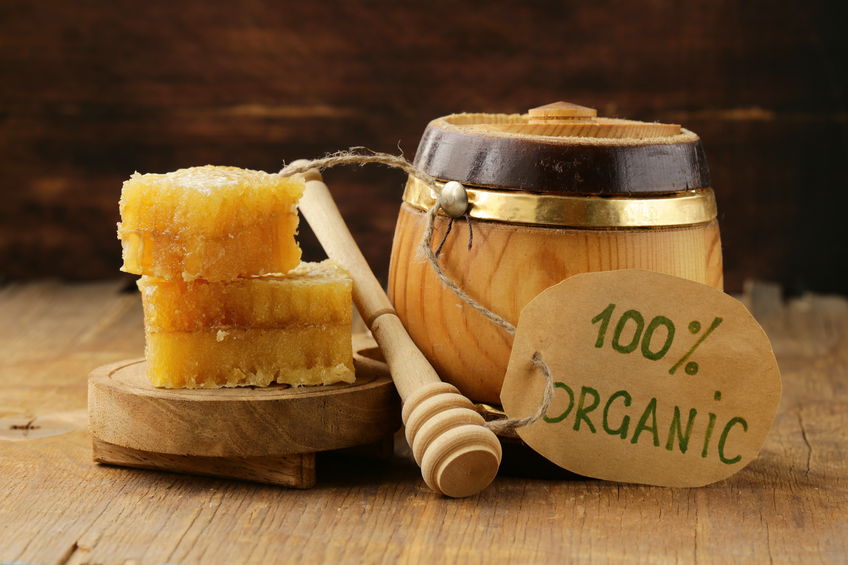7 Natural Sweeteners
If you have been following my articles you know the dangers of refined sugar and chemical sweeteners such as aspartame, sucralose, and saccharine. But did you know that there are natural sweeteners that are not only safe, but have nutrients and health benefits? As someone who loves to bake, I was relieved to find that I could still make delicious desserts and baked goods with healthier alternatives.
The difference between these natural sweeteners and those that are refined is how they are processed in the body. Naturally occurring sugars have a perfect combination of nutrients that your body is able to digest and utilize. These nutrients are destroyed when sugar is refined, or in the case of artificial sweeteners, were never there to begin with. These unnatural sugars wreak havoc on your health!
1. Pure Maple Syrup is one of my favorite natural sweeteners.
Not only is it great for topping things like oatmeal or plain organic yogurt, it can be used as a baking substitute! My all time favorite chocolate chip cookie recipe uses maple syrup as a sweetener. Pure maple syrup is an excellent source of zinc and manganese, both of which are important for a strong immune system. Make sure that it is 100% pure maple syrup (preferably organic), and not maple flavored corn syrup! I always get my pure maple syrup from Costco as it is about half the price of what you will find at a regular grocery store.
2. Coconut Nectar/Sugar is from the flowers of the coconut palm rather than the coconut itself.
It contains enzymes, minerals, vitamins, proteins, and antioxidants like vitamin C! This natural sweetener has a low glycemic index, meaning that it will not spike your insulin levels and is safe for diabetics. It tastes like a mild brown sugar and can be used in place of white sugar in almost any recipe. Again make sure that it is raw, unrefined, and preferably organic. Click Here to Read Our Blog on Coconut.
3. Stevia is made from the leaves of a perennial herb.
It is much sweeter than regular sugar, but does not contain any actual sugar molecules, making it a great option for anyone looking for a “calorie free” natural sweetener. Stevia is brimming with nutrients such as calcium, magnesium, potassium, vitamin C, iron, beta-carotene, niacin, chromium, and even protein! It has been shown to help regulate blood sugar, improve glucose tolerance, aid in weight loss, inhibit the growth of oral bacteria, stimulate the growth of beneficial gut bacteria, and help lower blood pressure. (1)
Stevia comes in a liquid or a powdered form. It does have a bit of an after-taste that some people don’t like. I personally use it for baking but do not prefer it in my coffee. Look for the brand Sweet Leaf as this is pure stevia. Avoid brands such as Pure Via and Truvia (owned by Pepsi and Coca Cola, respectively) which have drastically altered the stevia and added other chemicals.
4. Blackstrap Molasses is a dark, thick syrup make from raw cane sugar that is a great option for baking.
It contains nutrients such as calcium, magnesium, selenium, chromium, B vitamins, iron, and polyphenols. Look for organic blackstrap molasses that is unsulfured, meaning it does not contain the preservative sulphur dioxide. This is another great natural sweetener.
5. Raw Honey is a wonderful natural sweetener with many health benefits.
It contains protein, thiamine, riboflavin, niacin, calcium, potassium, vitamin C, iron, enzymes, phytonutrients and antioxidants. Raw honey has antibacterial properties, making it a great remedy for colds. Local honey has also been shown to reduce seasonal allergies. Most honey sold in grocery stores is pasteurized with high heat, which destroys these nutrients and does not have the same health benefits. Make sure your honey is raw, and preferably local and organic. I purchase my raw Colorado honey at Costco.
6. Brown Rice Syrup is made by fermenting brown rice with enzymes to isolate the starch content.
Brown rice syrup contains the nutrients of brown rice including protein, fiber, magnesium, manganese, and zinc. It is a natural sweetener with a mild flavor and is used in many products sold by health food stores.
7. Organic Unrefined Whole Cane Sugar is another great option.
A well known brand is Sucanat (short for sugar cane natural) and Rapadura. It is brimming with the nutrients present in the raw sugar cane plant. While I do like using this natural sweetener, you must be very careful when purchasing it. There are lots of refined cane sugar products (such as “Sugar in the Raw” and “evaporated cane juice”) that will try to confuse you with claims on the front of the package. These products are misleading consumers! Make sure that it is raw, unrefined, whole and organic. Just one of these claims is not enough.
I always purchase the brand Rapunzel. (2) It is a darker brown color with a delicious mild flavor. Just like coconut sugar, it can be used to replace white sugar in a 1 to 1 ratio in most recipes.
But what about Agave Nectar?
You might be wondering why I did not include agave nectar in my list of healthy sweeteners. For years it was believed that this was a healthy alternative. The truth is that agave nectar is a highly processed sugar that contains even more fructose (the type of sugar that goes straight to your fat stores) than high fructose corn syrup does! It can be anywhere from 70 to 90 percent fructose. (1) It is not safe for diabetics, will contribute to insulin resistance and type 2 diabetes, will cause sugar cravings and weight gain. This is why agave nectar is not deserving of a place among the healthy sweeteners!
I highly recommend Chocolate Covered Katie for free healthy dessert ideas! (3)
References:
1. Dee McCafferey, CDC, The Science of Skinny (Boston Massachusetts, 2012), 65-78.
2. http://www.amazon.com/Rapunzel-Organic-Whole-24-Ounce-Packages/dp/B001E5DZIO
3. http://chocolatecoveredkatie.com/












